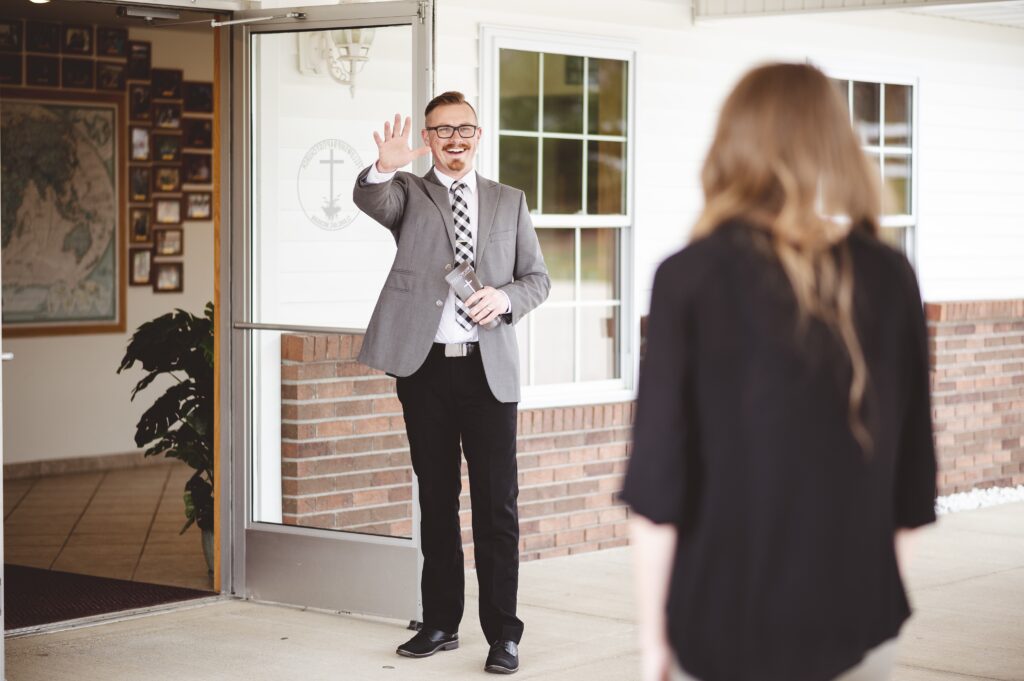Church planting is receiving enormous attention in the SBC and for good reasons. Church planting has always been a means of reaching people for Christ and fulfilling the Great Commission around the world. A perusal of our history as Southern Baptists verifies that assertion. Church planting is absolutely needed in our efforts to be faithful Great Commission Christians in a world starving for the Good News.
My concern is for a balance of emphasis upon church revitalization as a means of helping church planting efforts. The rationale for this is obvious to the discerning observer. Many of our churches in Alabama and around the SBC have experienced plateaus in various ways of measuring vitality and health for church families. I do not enjoy citing statistics to support this observation because data used in those surveys is often incomplete. By this I mean there are several ways to diagnose church health other than the numerical one we so often employ. This is a default position for those of us who speak about the need to have church revitalization.
My contention is that healthy churches help produce healthy new churches. It is all about the DNA of the process. New churches are not born in a vacuum. They are prayed for by committed leaders and prepared for by a team of people who are dedicated to seeing the new church be born in a healthy way.
My own pilgrimage as a pastor and state missionary has led me to experience a burdened heart for existing churches needing revitalization. I have served inner city churches and county seat congregations in addition to doing some coaching and consulting of pastors and other church leaders throughout my ministry. Granted, I do not claim to be an authority on the ways and means of nurturing church revitalization. That would be the height of arrogance on my part. However, I think I have some perspective concerning what a healthy church looks like.
Annual physicals help us have some idea about our own state of health. I have discovered that doctors love numbers. Your blood pressure is a numerical sign of health. Your cholesterol is as well. Obviously, your weight is numerical. Today, there is an emphasis upon one’s waist size as an indicator of heart health. This is just the tip of the iceberg for a medical exam indicating one’s health.
However, we have all known people with outstanding health numbers who became very ill or even died. The take away is that numbers count, but they are not the only way of determining health. Like doctors, those of us who seek to assess the health of a church find ourselves spending most of our time examining numbers.
In medicine today there is a growing movement called listening to your body. Some doctors will spend time with the patient asking the “How are you?” questions, which cover a host of important areas including sleep habits and overall feeling level concerns. This is a personalized form of relating to the patient, and it also helps the doctor see things that cannot be numericalized.
Not to sound like doctors, but those of us who are seeking to assist churches assess their situations need to go beyond the numbers to the “How are you doing?” type questions. This is a listening to the church body kind of approach. It is really a self-assessment which can lead to an introspective discovery of how churches consider their effectiveness in ministry and missions. I believe it is a good starting place for seeking guidance from the Lord and from others concerning church health.
Do not misunderstand me: I am not advocating a turning inward approach to ministry. No, on the contrary, I believe this kind of self-assessment can be very productive when done honestly and transparently. There is no need for the blame game approach in this effort. It is just a healthy way of assessing how the church is doing in terms of ministry effectiveness.
There is another reason this approach is a positive way to look toward a church revitalization movement. Among Baptists, the autonomy of the local church is a core value and rightly so. This means churches initiate the desire for outside assistance. That is the Baptist way, and I like it.
Your State Board of Missions is seeking to chart a course toward a self-assessment model for churches. This is something the Great Commission Ministries FutureFocus Task Force has helped to spark among us. The idea grew out of a prayerful discussion of how we can best assist our churches without stepping out of bounds in terms of our polity and practice. Personally, I feel good about this model.
As state missionaries, we are going to spend some time being better schooled and trained in church revitalization efforts. This is going to be a high priority for us as servants assisting churches in their ministries.
Admittedly, this is not an easy task for anyone to undertake. There are all kinds of methodologies being espoused as church revitalization practices. Our belief is that church revitalization is more than a conference; it is a process which begins by prayerful introspection of concerned leaders in the church family. From that vantage point, the Lord will open our eyes to what we need to be and do to see our churches become more effective for the Kingdom of God.
As we advance toward the Praying Across Alabama effort next year, let us make praying for church revitalization a high priority. Without revived and recommitted Christians and revitalized churches, our ministries will be weaker, our influence will be anemic, our local areas needing to be reached with the Gospel will be negatively impacted and our state, nation and world will see less of a Christian witness.
I cannot overstate the importance for the need for church revitalization. I believe we must make this a Great Commission ministries priority for the near future, or we will see more churches limping along in need of a fresh visitation of God’s Spirit in our lives individually and collectively. We dare not turn a deaf ear to this call to repentance and renewal. We need to be found faithful in our witness for the Lord and healthy in our ministries for Him.
Churches have self-esteem issues, just like people. In many cases, churches need encouragement in their pilgrimage, rather than berating them for what they are not doing. When God’s people are in a close walk with Him, their sense of mission is highlighted. Their witness is brighter and their God-given confidence is renewed. That is what I call healthy church self-esteem. It is rooted in a relationship with Him and not based upon world standards and practices. That is the foundation upon which we can, as co-laborers for Christ, build a future for our churches.
Count me in on this effort. I want to be a part of a church revitalization movement stirred by the Spirit of God and nurtured by godly wisdom and discernment among His people. I want the coming years to be our best years for His glory. I pray for church health which leads to reproducing healthy new churches. I desire to see God do “a new thing” among us which can only be explained on His terms. Now that is what I call real revival!


